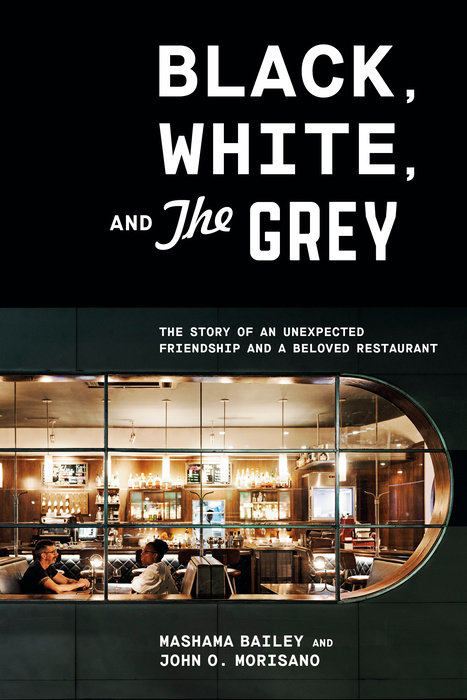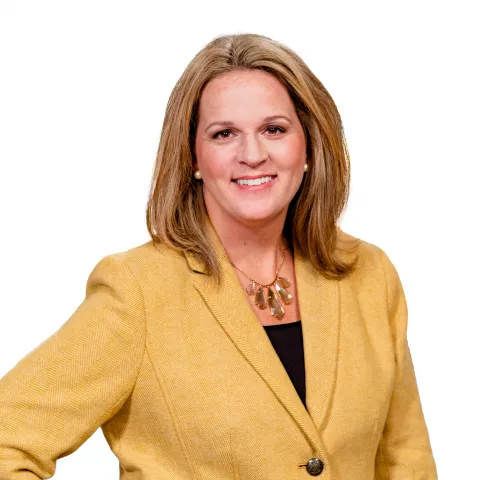In a recent episode, Holly Jackson is "By The River" with award-winning entrepreneurs and writers Mashama Bailey & John O. Morisano discussing their book, Black, White, and The Grey. Together, they paint a picture of Savannah in striking greyscale. Holly breaks into the restaurant world and learns about the tragedies there.
Why take this risk? Was there ever a point where you felt like, whether it's some higher power or a nudge within you that this is something you had to do, but just didn't know why yet?
J: Yeah, the food and wine part I had kind of always considered as an option for myself at some point in my career, so maybe that wasn't the most surprising part. Having had some time to reflect on it now and having written a book about it, I think it was reinvention. I was literally just gonna make up a new me and the restaurant was how I was gonna do that. I was burned out and I was tired, emotionally tired. I really think it was just a question of starting over in a way and doing something completely… Different.
Do you feel that you, Mashama, this might be weird at first to think this, but do you feel like you're a different, better chef because of the book experience?
M: I think I'm a different, better person because of the book experience. I think that I started to unlock certain things about myself that I never felt like I needed to. I think I'm a better communicator because of the book, and I think that I'm a better leader because of the book. I'm ready to sort of let some things go and give and delegate to other people. And I think before the book I wasn't ready for that, so I think it really helped with my self-confidence actually. It’s really different the way it's written.
How would you explain it and why you all decided to go that route?
J: Well, the way the book was conceived, I went to Mashama and to answer the question and it's another thing where I think the need only showed up to me retrospectively, right? Because it was really an exploration on our flaws ultimately. Going through that process is cathartic. When I went to Mashama and I said, hey, let's write a book, she was like, no, I don't wanna do that. It was really, really simple. Well, I might do it. She's like, have at it. That's how the book started. The book originally was gonna be very business logistics. Here’s some advice for the entrepreneur that's starting a crazy business or following a passion or doing something and here's some of the things you need to look out for. The editor who bought the book, Lorena Jones, who we remain really, really good friends with, she was just like, the book's good, but it would be great if we could somehow figure out how to plug Mashama's perspective into these things, because this is really a story about two people and you're trying to tell it from one person's point of view. It would, frankly, just be better the other way. So I went to Mashama and lied to her about how easy a process this would be and that she would barely need to do any work at all. She could eat bonbons and get manicures and dictate to me and I'll do everything. I think in retrospect, I really was lying because I knew Mashama well enough and I knew the two of us well enough that once we really decided to do this together, we were gonna do as best a job as we could do. That was gonna require two years of your time and a lot of hard work. And you know, between the two of us, we have like five or six years in the damn book you, you know.
Race relations, that's a huge part of the book and there are some tense moments. Were there ever moments where you thought, wait a minute, this might come between us there some?
M: Yeah. I think that really, there were parts of the book that we've talked about. Our view of Savannah was slightly different. Our view around the incident of Scott's death was slightly different. And so that was really based on our backgrounds and our perspectives of how things occurred in our life and how we were empathetic to certain things or are judgmental of other things. I think that the book really explored our relationship surrounding race. We never had a conversation about race before that. Obviously we know that each other are of different races, and we respect that of one another. We know that from a food perspective, we know that from just looking at each other, but when we really kind of got in to talk about like opinions and politics and those types of things, we never had those conversations because we were really just focused on growing the business. As you write a book about different things or the approach to different things that are happening to us, like the way that we're building the restaurant and the contractor's perspective of a point of view of me versus his point of view of him, those things are very personal. And they're sometimes race based, right? Those viewpoints are based on race and how you experience those things through life. How you take those experiences through life. I think until we actually realized that we needed to have a conversation with each other before we could actually put it in the book, we didn't really have a book then. It was really just us walking alongside each other but never really talking to each other. It wasn't until we started talking to each other about the different experiences that we were shelling out in the book. That’s when the book started to come together, I think.

I love that there are so many surprises and one of them you are very clear about, I don't want the shrimp and grits, I don't want the deep-fried foods. I don't want what people think of as Savannah food. Why were you so adamant about that?
J: Well, I wanted Italian food, because I'm Italian, but I wanted it to be surprising. I wanted us to do something that was not built for tourists. I think that there's plenty of good places to get shrimp and grits in Savannah, or things like that. To me, to be a local restaurant, we had to provide something for locals. I didn't want to compete. This was just me as I was thinking about it. There's a place in Savannah called the Crystal Beer Parlor that I still go through two, three nights a week. When I go to the Grey, or when I go to Common Thread, which is a place that just opened in Savannah or in the last couple of years, that is expanding the conversation of what Southern food is and what food cooked in the South is. I didn't have that vocabulary to be able to expand the conversation of food made in the South until I met Mashama, but that became the thing that was very exciting to us.
You’re talking about risk after risk after risk, but then you put it all in the book and it's like you're giving out the secret sauce to these people. Why do you want to share what made it so successful?
J: The only thing that made it successful was hard work. There is no secret sauce. The secret sauce is outwork everybody. Don't give up! I think that's really what the story of the book is. Don't give up on the food that you believe in. Don't give up on the relationship that is getting you there. We had something go down this weekend where I talked to Mashama, we had some bad things staff-wise. And I said, God, it makes me wanna sell everything, she said, you always say that. You've been saying that for nine years.
M: I think like my motto is a little bit of yes and you know, like I kind of go with the flow, but I also really believe in myself and I think that I add something to the conversation. That's why I was so adamant about not necessarily making Italian food because it didn't feel authentic, but it felt fine because we were traveling together and Italy was a place that we traveled together. It made sense. I just wanted to view Southern food from a different perspective, I wanted it to be organic and unique and really showcase the ingredients because really a lot of restaurants really are focused around celebratory foods. Special occasion foods, but you can't live a life off of special occasion foods. You need a little bit of pause in between that and some healthiness in between that. I wanted to show that southern food could be healthy, it could be rich, it could be simple.
And what was it about the partnership? Was there a defining moment that made you say that?
M: Yes. That's a good question. I think it was the building. Yeah. I think when we first met, we met in an office in New York City, he pulled out these blueprints and there was a bazillion seats everywhere. He had all these plans because he has been working with the design crew and the contractors for a couple of months before that. I was like, ah, there's no way I can do this. I'll just go down and take a look at it, because it was in a segregated bus station and I really wanted to see that. I think it wasn't until I stepped into that building that I believed that I could do it. I thought I didn't, I didn't ask for permission. I just sort of like went with it. Here we go. I don't think I ever went back after I saw the building and was like, well, I think maybe it was sort of like, okay, so I'm gonna do this. I was in contact with my brother the whole trip, which is odd because we don't really talk often. For me to talk to him while I'm on a vacation or something like that, or on a work trip was kind of bizarre, but we sort of talked the whole time and he was there for me when I was talking through the process of logistically how this was gonna work. He just kind of listened and I just was like, all right. When I got back to New York, I knew that I was gonna do it.
In terms of writing, are you done with that part?
M: I am for now. Yeah, I am. For now, he's not, no. He wants to write.
J: Tomorrow? Well, I'm gonna probably write fiction. I started when I was younger writing fiction and may go back to doing something that uses all the experiences I've had. I've had this kind of crazy life and do things like this and I think that there's a lot of fodder there to tell a good story.
M: I think if there's anything next, they expect it as maybe a cookbook. I think that would be probably the next logical step.
J: But it won't be a cookbook knowing Mashama. It won't be a normal cookbook. She'll be like, I wrote a cookbook and it turned into the Iliad.


